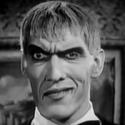Tried to edit, but missed the time window.
EDIT:
Branca's interview on self defense law was good. Honestly, his Firearm's Nation podcast interview contained the same information, plus more. It is always great to hear from Branca about what we should know as far as legalities when it comes to self defense, but the moral of the story is know the law and you will know what you can do. Knowing the law will take some research.
Will Petty's summit talked obviously about VCQB. He essentially discussed how police vehicle tactics have stagnated and not advanced over time. So he discussed what positions on the car act as the best defensive position (the back) and how using the door's V as a position is based on compliant suspects and it fails when suspects press against it. He also discussed how vehicles act when shot, and how certain angles deflect or change in trajectory. The results are actually predictable after seeing enough cars get shot. He also talked about how cars don't stop bullets, they just prevent them from hitting you and that cars as cover can break down. He discussed how cars should be thought of as structures when working outside them. He also spoke about institutional dogma with LE training. A lot of this information was new to me.
BJ Norris talked a lot about steel challenge. My major take away from listening to him was that everything that isn't actually breaking the shot and getting recoil is something you can practice in dry fire. The other big thing was that if it comes down to very small margins to determine who wins, than your draw becomes that much more important. If you have X number of draws in a match, then becoming consistently .1x faster on your draw can add up enough to make the difference. He spoke also about how working any pistol sport will improve you overall at any other pistol sport. He was really laid back, but clearly had a very strong grasp on shooting and what was important for dry practice to develop skill for steel challenge (although also applicable to USPSA).
Keith Garcia talked about the balance between skill and gear. He mostly spoke about starting off with quality gear will set you up for success. You need the skill to win, but if you don't have quality gear it will hold back your skill development. He gave a breakdown of what he uses for competition and for duty. He has his preferences obviously, but what he had to say about the relationship between skill and gear was the real take away for me. Skill wins, and gear just has to facilitate the skill's development. It does that through consistency and dependability.
Hana Bilodeau of Sig Sauer spoke about concealed carry choices for women. This mostly boiled down to helping women (or men) choose a firearm that they can reach controls on, that they will actually be able to carry and fit into their lives. She also spoke about belt and holster. The differences in carry positions between men and women were discussed as well. To be honest, this wasn't recorded with me in mind as the audience. Quality information for newer shooters both men and women was covered.
I think that's pretty much a brief synopsis of each session I've listened too, and my take aways. I'm listening to Steve Anderson right now before I have to start work. Working form home gives me the ability to take in more of this stuff than I could otherwise, so that's cool.
-Cory





 Reply With Quote
Reply With Quote



